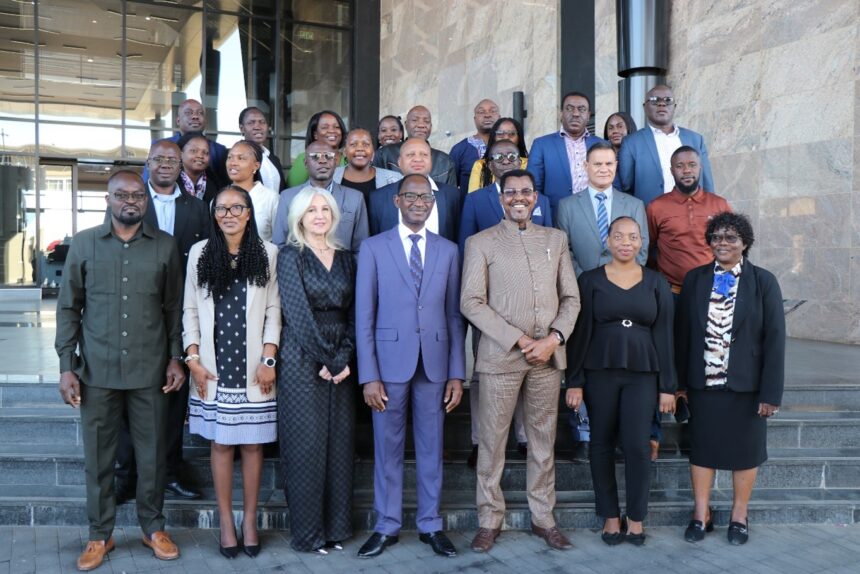The Anti-Corruption Commission recently held a four-day consultative workshop to discuss the Draft National Anti-Corruption Policy Framework (NACPF).
The workshop, hosted at the Ministry of Home Affairs, Immigration, Safety, and Security, focused on refining the framework that will guide Namibia’s anti-corruption efforts over the next six years.
Addressing the workshop, ACC director-general Paulus Noa emphasised the importance of organising the policy document based on collective input and practical considerations.
“This document must be prepared in a way that reflects the interests of the Namibian people and addresses what is practical. It should be part of the law guiding the fight against corruption,” Noa said.
He also noted that the Anti-Corruption Act has been tested in the High Court on certain provisions, and these legal instruments, particularly those related to organised crime, have not only been ratified but also tested in legal settings.
“These legal instruments should serve as reference for this document,” he added.
ACC executive director Tylvas Shilongo, credited as the primary architect behind the drafting of the NACPF, highlighted the importance of incorporating diverse viewpoints in the framework’s development.
“Everyone’s input is crucial in ensuring the smooth formulation and implementation of the policy,” Shilongo said.
The policy is being developed in a coordinated, consultative, participatory, and all-inclusive manner, involving all key stakeholders in the fight against corruption.
The NACPF is designed to harmonise the National Anti-Corruption Strategy and Action Plan with other national policies and laws combating corruption, including the Anti-Corruption Act, Public Service Code of Conduct, Integrity, and Ethics, as well as the Public Service Act.
The policy framework also aims to align and coordinate these legislative measures, providing a comprehensive approach to fighting corruption in Namibia.
While Namibia has had anti-corruption laws and mechanisms in place since the operationalisation of the Anti-Corruption Act in 2003, the need for a unified national policy framework has been identified.
The NACPF, set for implementation from 2025 to 2030, addresses this gap and ensures that Namibians are both entitled to and accountable for adhering to this national policy. The framework is informed by historical developments in the fight against corruption, including assessments by international bodies such as the UN Convention Against Corruption, which highlighted the absence of a comprehensive national policy and legal framework.
The NACPF seeks to build on existing foundations, incorporating practical and collective input from stakeholders.
Throughout the workshop, ACC staff members contributed insights to refine the NACPF draft document. The collaborative process aimed to enhance Namibia’s institutional and legal framework against corruption, fostering synergies and ensuring the policy effectively monitors and evaluates the efficacy of various anti-corruption measures. The workshop, which concluded last Friday, was attended by key members of the ACC management team, including the director-general, deputy director-general, executive director, and heads of directorates, divisions, and sub-divisions within the commission.
From here, the policy will undergo external consultations.
*Keshia Damases is a public relations intern at the ACC.



